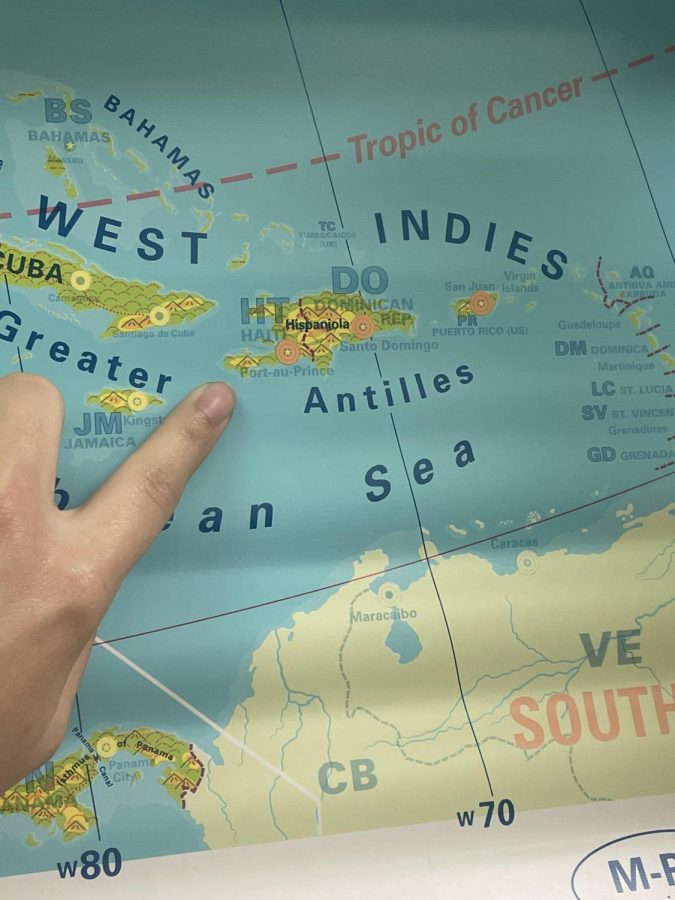Haitian Assassination Puts Americans At Risk
Will the U.S. come to the rescue of Haiti–again? If so, at what cost?
September 3, 2021
Throughout U.S. history, four of the Presidents have been murdered while in office: Abraham Lincoln, James Garfield, William McKinley, and JFK. However, assassins know no boundaries and will strike wherever and whenever they politically have a mind to.
On July 7, the Haitian President–Jovenel Moïse–was brutally shot and murdered while spending time with his wife in their home. Martine Moïse, the president’s wife, was also injured while shots were being fired at them. Martine was left to die on the floor in their home and was later found–thankfully, still alive.
She posts “I am alive, thanks to God” on her Twitter page and has done an interview with CNN recalling the tragic events that occurred on that fateful day. After leaving the ICU at Jackson Memorial Hospital, more information about her condition was released, detailing how her left arm was broken as well as outlining the critical nature of her gunshot wounds.
President Moïse, 53, was by all accounts a successful entrepreneur and politician. He and his wife had celebrated their silver anniversary and had three beautiful children to show for their 25 years of marriage. However, as beloved as he may have been by his family, many Haitians considered him to be a dictator and were protesting his refusal to leave office when he was assassinated.
EHS senior Ethan Bowlby was surprised to hear about the tragic event. “I hear about assassinations sometimes, but I try not to dwell on them,” he states. “I had not heard about this until just now! That’s definitely not a positive light-hearted thing to have happened to a President.” However, Americans need to “dwell” on this issue, as it affects the U.S. financially and militarily. The United States has a long history of supporting the Haitian country–whether it is due to devastations caused by earthquakes or violence caused by political turmoil. In both cases, both money and military have been sent to restore the calm. It is very likely that the Biden administration will do both in the coming months.
However, the situation is not without hope. More than 40 arrests in Haiti have been made for the suspected murderers–including 28 foreigners taken into custody. In addition, retired Colombian soldiers have also been investigated, but no one was quite sure who was responsible, until Haitian police identified 35-year-old James Solages and 55-year-old Joseph Vincent as two of the shooters. Before their capture, officers pleaded during a press conference with the Haitian viewers to help find the suspects who were on the run.
Word came out that both were U.S. citizens from Florida. According to the New York Times Post, the original plan for the group of attackers was to kidnap Moïse but not kill him. However, that’s not what went down. Solages and Vincent have also claimed that they were simply only in the “murder squad” to be translators.
In real video footage of the attack, the intruders claim that they are DEA agents, which means they supposedly work to stop drug trafficking and terrorism. DEA officials have come out saying, “These individuals were not acting on behalf of the DEA,” which basically overrides any excuse these intruders try to make. Vincent eventually refused further comment and requested an attorney.
Christian Emmanuel Sanon was later arrested and investigated as the “mastermind” behind the attack. Sanon, a 63-year-old Haitian-American doctor, was named by a police chief as one of the assassins behind the attack after information linking back to Sanon was found. “His intentions were purely political,” the chief stated. The police claim that Sanon and his assailants supposedly were given an arrest warrant for Moïse, which was the supposed motive for his murder.
Moving forward, the U.S. needs to focus on strategies in Haiti that will not be so costly to American lives. As this nation reels from the effects of a 20-year war in Afghanistan–and continues to mourn the loss of 13 brave soldiers who gave their lives in the final days of the evacuation–it makes many a bit gun-shy at the thought of risking even more lives in Haiti. Violence as a whole needs to be stopped–or history will repeat itself.








